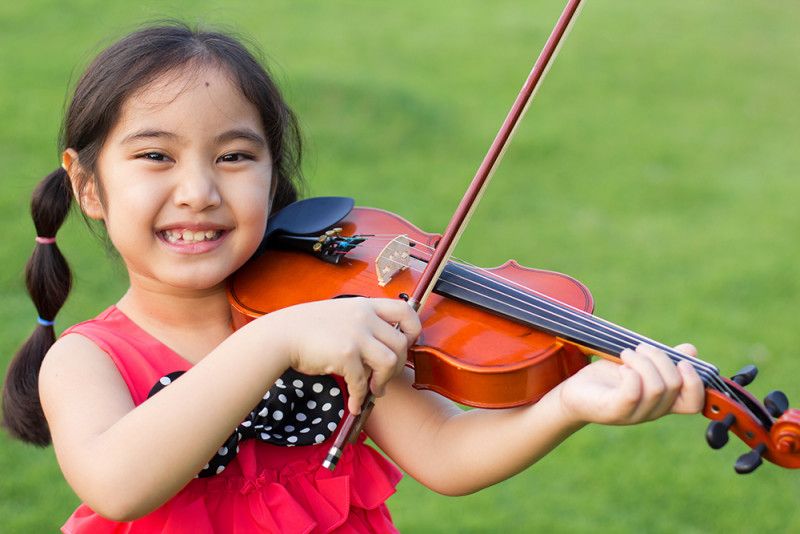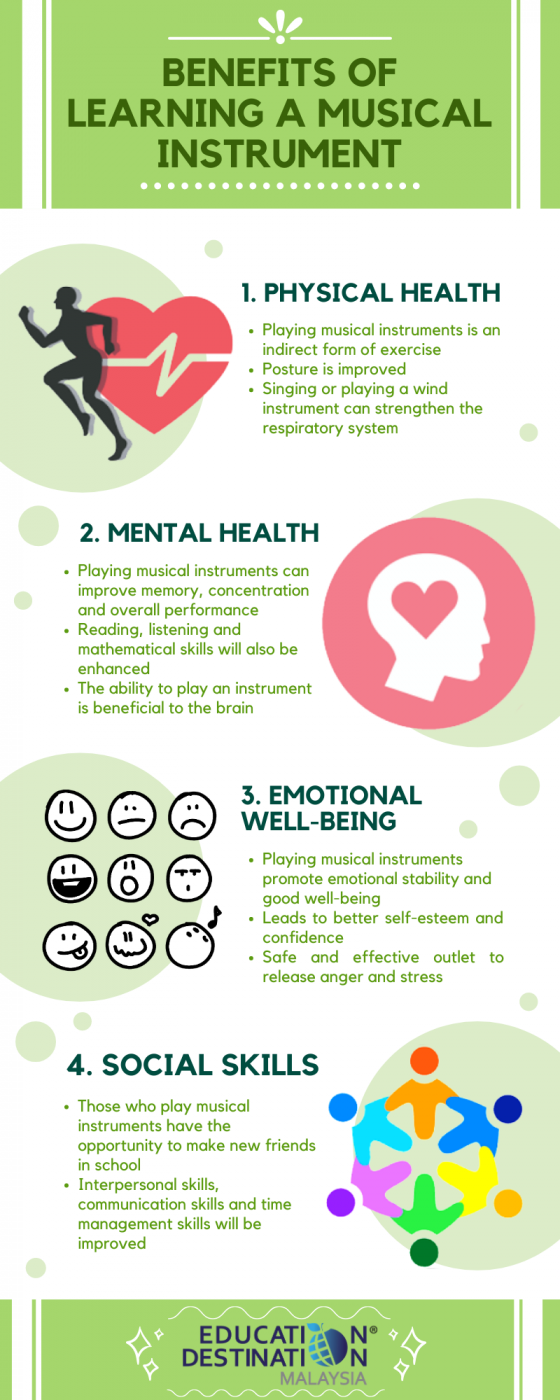Most international schools in Malaysia have an extensive list of extracurricular activities (ECAs) in the area of music. Students are encouraged to play an instrument, sing, join the school choir or band, and also put up plays and musicals.
Learning music has many benefits in terms of mental and physical well-being. Here are some benefits of being able to play a musical instrument!

1. Physical Health
When someone is playing a musical instrument, he or she is actually getting a form of indirect exercise. Arm and back muscles are engaged when playing and holding up instruments such as the piano or guitar. Posture is also improved when playing a musical instrument which is good at alleviating neck and back pain. Drummers also get a decent amount of cardio exercise as they use both legs and arms to create sound. In addition, singing or playing a wind instrument can strengthen the respiratory system as they require deep breathing from the diaphragm.
2. Mental Health
Playing a musical instrument is extremely beneficial for the brain. It has the ability to improve memory, concentration and overall performance. This is because those who play music often need to read music notes and memorise pieces for performances. An individual’s reading, listening and mathematical skills will also be enhanced. Reading music may lead to better absorption of information as musicians need to listen to rhythm, tune and timing. There are also many mathematical elements in learning music such as pattern recognition, measures and beats. Therefore, it is no surprise that musical skills are linked to improved academic performance overall.
3. Emotional Well-Being
Those who play musical instruments may have more emotional stability and good well-being. The ability to play an instrument well leads to better self-esteem and confidence. This is further enhanced if an individual has an opportunity to perform in front of an audience or win competitions. Playing music is also a safe and effective outlet to release anger and stress. It is a healthy distraction if someone is having a difficult day. Furthermore, playing music helps individuals express their emotions and creativity if they decide to create their own music and songs.
4. Social Skills
Those who play musical instruments have the opportunity to make new friends in school. This could be through the same music class or bonding with individuals who have the same interests as them. Interpersonal skills, communication skills and time management skills will be improved as a result of building more friendships.
All parents should encourage their children to participate in music-related extracurricular activities in school. According to Mr. Goh Kent Lee, Head of Music at Sayfol International School, music education should be integrated in all schools’ curricula so that students can reap the many benefits it has to offer.

For more information on the music ECAs offered by international schools in Malaysia, use the powerful School Finder and School Comparison tool today!















![[Maahad Tahfiz Negeri Pahang] Asia Youth International Model United Nations](https://mint-edm.sgp1.digitaloceanspaces.com/production/qKffTsfZisDxO4b6kcejusAA7mWWgL.jpg)





















